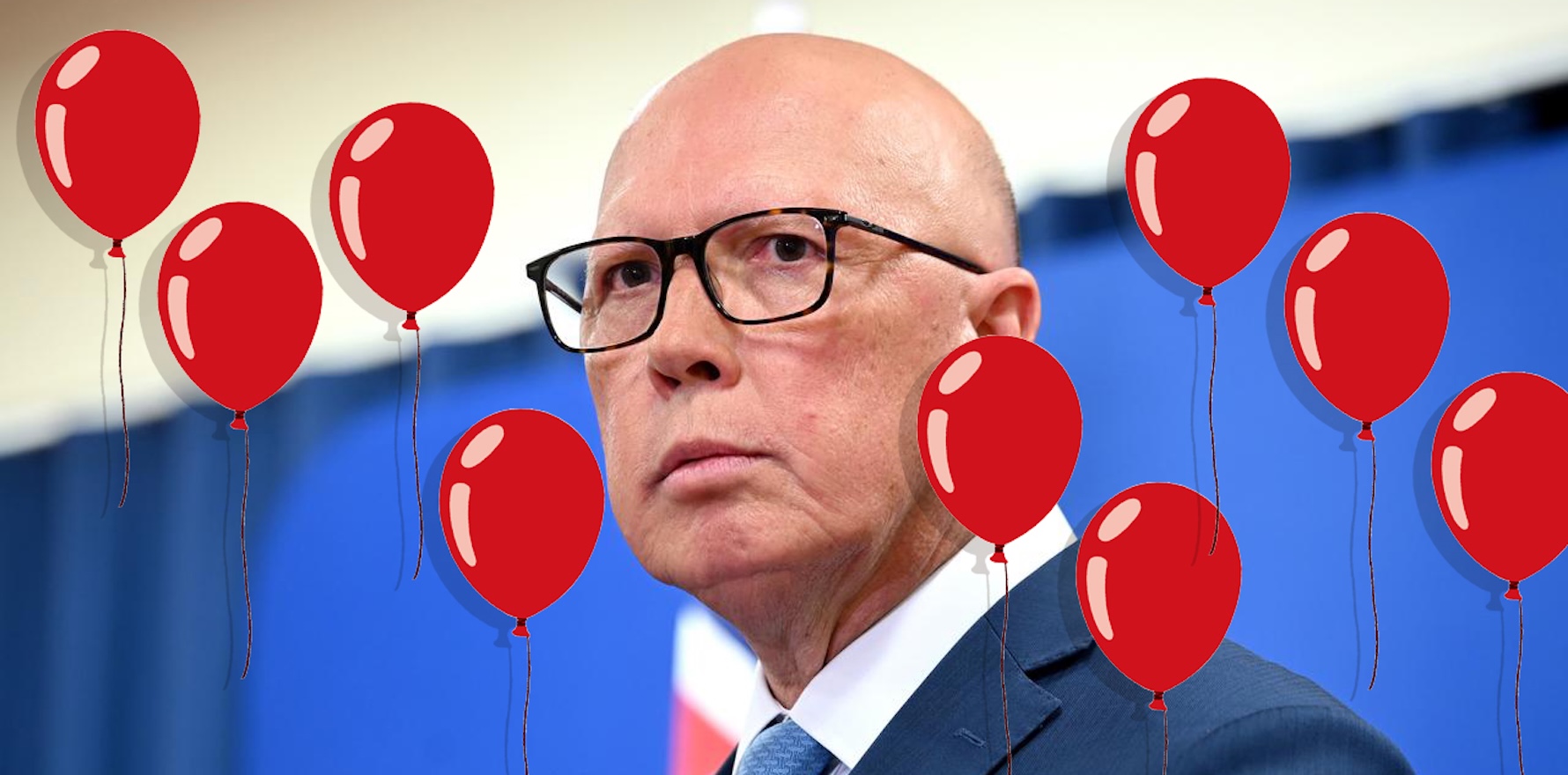So far, details are scant and motherhood statements plentiful. Wait and see, says the Opposition.
Last time Peter Dutton had anything to do with the health portfolio it was 2014, he was health minister in the Tony Abbott government and his big idea was to introduce a $7 “co-payment” to see a GP.
When that failed to pass the Senate, he proposed a reduction in Medicare rebates to GPs.
Neither of those proposals got up, largely because doctors screamed blue murder, causing Mr Abbott to throw Mr Dutton under the bus by declaring there would be no new healthcare proposals without medical profession support. Mr Dutton got moved to the immigration and border protection and the rest is history.
Now that he is leader of the Opposition with an election looming, what does Mr Dutton have planned for the healthcare sector?
Bulk billing has dropped from 88.3% when the Coalition left office in 2022, to 77.2% in October of 2024 – give or take a bit either way depending on whose data you’re looking at.
Labor will say that decrease is slowing down because of their tripled bulk-billing incentives. The Coalition will say that’s despite the tripled bulk-billing incentives.
Current health minister Mark Butler has already had a crack at Mr Dutton over his performance as health minister in 2014.
“When he was health minister, Peter Dutton made it so more Australians would be stung by higher taxes each year if they didn’t have private health cover, and their insurance would cost more and more as their rebates got smaller and smaller,” said Mr Butler back in November.
“By the time we ended this hidden bracket creep, more than two million Australians had been hit with higher taxes or more costly insurance because of Peter Dutton and the Coalition.
“We ended Peter Dutton’s health tax grab because we want every Australian with private health insurance to get value from their policy.
“Because of our change, Australians with hospital cover won’t see their rebate eaten away by bracket creep year after year, delivering important cost of living relief to more than 15 million Australians with private health insurance.”
Treasurer Jim Chalmers has been telling voters that medicines and pensions were “not safe under the Coalition” and that Mr Dutton came “after Medicare last time,” a reference to the 2014 brouhaha.
But what is Mr Dutton actually saying?
A starting point is a document called The Priorities of a Dutton Coalition Government. Section 8 of that document is entitled “Deliver quality healthcare”.
There are some criticisms of Labor – “cuts to Medicare subsidised mental health support”, “Labor’s cost of living crisis”, “health is not being prioritised by Labor and under the Albanese Labor Government, Australia is heading in the wrong direction” – and a list of motherhood statements about what healthcare should be – “patient-centric”, “quality”, “strong public health system”, “we value the private sector’s participation”, “the Coalition backs frontline healthcare workers … not bureaucrats”.
The Dutton Solution includes the following actions:
- Restoring the Coalition’s doubling of Medicare-subsidised mental health sessions from 10 to 20 on a permanent basis;
- investing $400 million to rebuild the GP workforce and encourage junior doctors to become GPs;
- work collaboratively with patients, the Australian Medical Association and Royal Australian College of General Practitioners;
- Guarantee the growing funding of Medicare;
- Support Australians to receive healthcare in a timely way wherever they live;
- Grow our GP workforce to address increasing shortages through new incentive payments, entitlements and training support;
- Support Australians to access suicide prevention services;
- Invest in cancer treatments, such as specialist cancer nurses to support Australians with ovarian cancer;
- Invest in cutting-edge medical research;
- Deliver new investments in best-practice women’s health issues, such as endometriosis, menopause and peri-menopause;
- Support regional health worker attraction, recruitment and retention initiatives to ensure those living outside our metropolitan centres are not disadvantaged;
- Conduct a review of women-specific health items funded under Medicare and the PBS to ensure the best support is provided to Australian women;
- Reduce unnecessary waste in the health bureaucracy, redirecting it to frontline health services;
- Continue support for the timely access to medicines through community pharmacies.
Details are scant, however. For example, what exactly are those new incentive payments for “growing” the GP workforce?
Senator Anne Ruston’s spokesperson told HSD today that:
“It will directly provide junior doctors across the country with financial incentive payments, assistance with leave entitlements and support for pre-vocational training.
“Fundamentally, the national scheme is designed to ensure that junior doctors pursuing a career as a GP in the community are not at a financially disadvantaged if they choose to continue their training outside of a hospital.
“The investment will deliver pay and leave parity to address the declining number of graduates wanting to pursue a career as a GP. This measure has been strongly welcomed by doctors groups such as the AMA and the RACGP.”
How will a Dutton government “support regional health worker attraction, recruitment and retention” – a wicked problem that has been occupying governments for decades?
How will a Dutton government “reduce unnecessary waste in health bureaucracy” and how many public service jobs is that going to cost?
“This priority area relates only to internal expenditure within the Department of Health (i.e. staffing and office expenditure) and does not relate whatsoever to healthcare workers or funding into Australia’s healthcare system.”
Also not mentioned is how a Dutton government would, or would not, support the ongoing work of agencies such as the Australian Digital Health Agency and the newly established Centre for Disease Control.
“We will be making further announcements in due course on the full suite of health policies that will be taking to the next election,” said Senator Ruston’s spokesperson.



